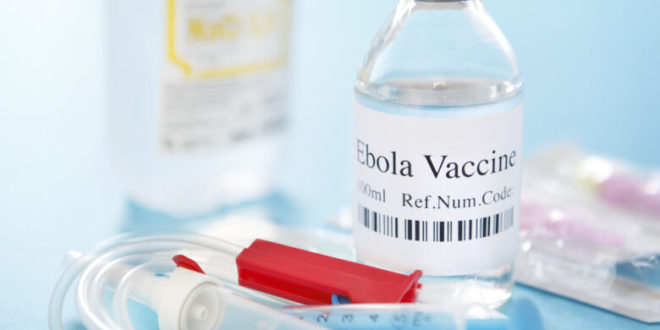Ghana is making plans to secure Ebola vaccines from the World Health Organization (WHO) to mitigate the effect of the virus in case the country records cases, the Director-General of the Ghana Health Service (GHS), Dr Patrick Kuma-Aboagye has disclosed.
This follows recent reports of an outbreak of the virus in the West African country of Guinea, which has already killed three people.
Dr Kuma-Aboagye noted that the GHS will be targeting persons at high risk of contracting the virus when the vaccine is secured.
According to the Director-General of the GHS, it has now become necessary for the country to secure the vaccines after it stopped an Ebola vaccine trial, which was being undertaken in the year 2015 in the Volta regional capital of Ho.
He further noted that if the trial vaccine had been allowed, it would have helped the country to secure the appropriate vaccine tailored to the genes of the people amid the current outbreak.
The three deaths in Guinea were out of seven reported cases.
The GHS has, therefore, called on Ghanaians to take precautionary measures against the virus.
A statement issued by the GHS earlier, said: “This is to inform all stakeholders in the health sector of the confirmation of seven (7) cases of Ebola Virus Disease (EVD) in Guinea on 14 February 2021. Three of the cases have died from the disease.”
The GHS called on all regions, districts and health facilities “to initiate preparedness and response plans for EVD.”
It further called on regional and district public health facilities to remind all Ghanaians and residents in Ghana to protect themselves by avoiding “contact with blood and fluids (such as urine, saliva, sweat, faeces, vomit, breast milk and semen) of people who show any symptoms of the above, practice hand hygiene: frequent hand washing with soap under running water or using alcohol-based hand sanitiser” as well as not handling “items that may have come in contact with an infected person’s blood or body fluids”.
“Avoid contact with dead bodies, including participating in funeral or burial rituals of suspected or confirmed Ebola cases, avoid contact with animals (such as bats or monkeys) or with raw or uncooked meat, do not handle bushmeat (wild animals hunted for food), seek medical care immediately (nearest health facility) if one develops a fever (body temperature 38 °C or above) or other symptoms such as severe headache, fatigue (feeling very tired), muscle pain, vomiting, diarrhoea, stomach pain, or unexpected bleeding or bruising.”
 Home Of Ghana News Ghana News, Entertainment And More
Home Of Ghana News Ghana News, Entertainment And More





